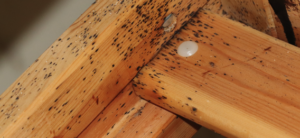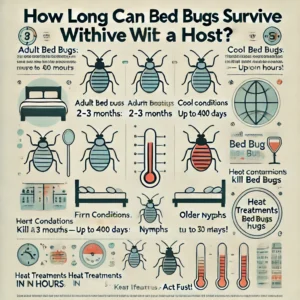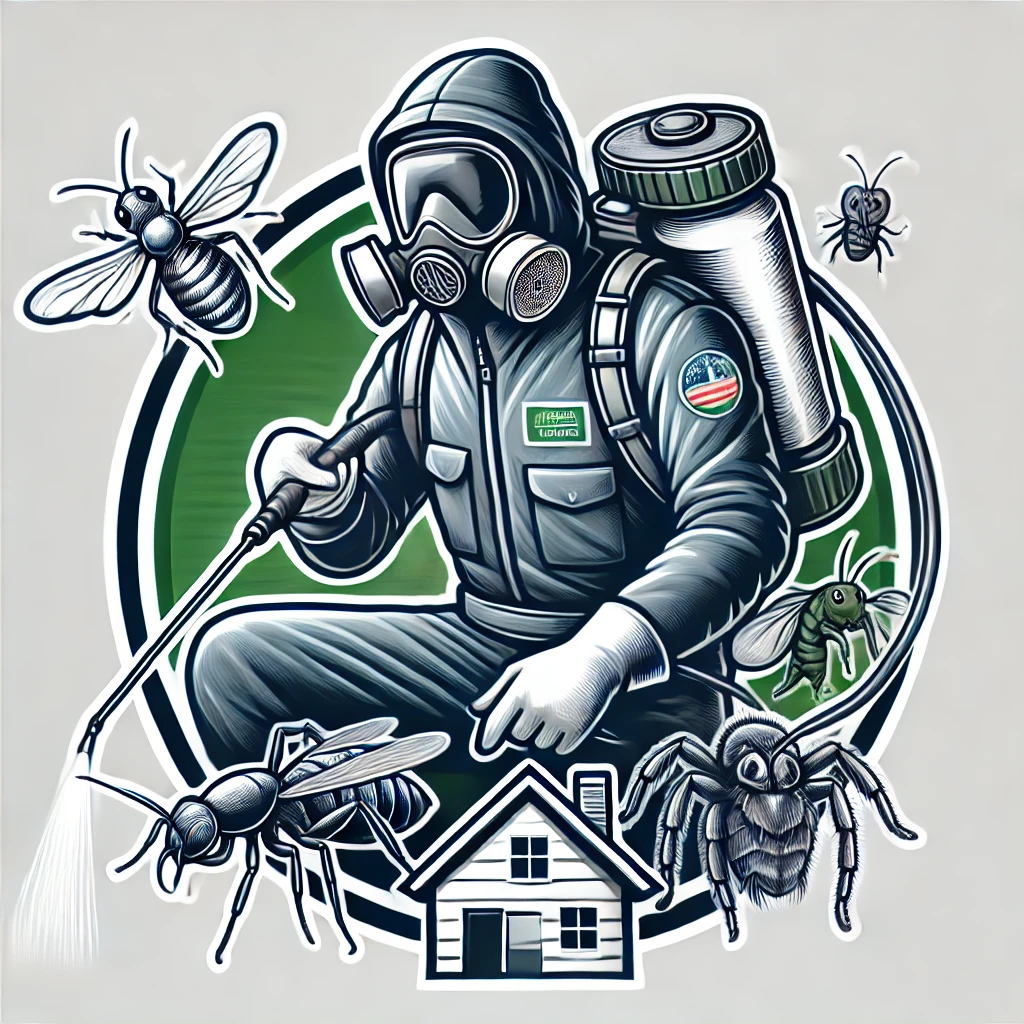Bed bugs are notorious for their resilience and ability to survive in harsh conditions. But how long can bed bugs live without a host?
Whether you’re dealing with an infestation or trying to prevent one, understanding their survival timeline is crucial for effective pest control.
We’ll explore how long bed bugs can survive without feeding, the factors that influence their survival, and what you can do to eliminate them for good.
Understanding Bed BugSurvival Without a Host
Bed bugs are persistent pests that rely on human blood for sustenance. However, they are also highly adaptable and can survive for extended periods without a host. Their ability to endure starvation depends on several factors, including temperature, humidity, and their life stage. Let’s break it down.
How Long Can Adult Bed Bugs Survive Without Feeding?
In ideal conditions, adult bed bugs can survive between 20 to 400 days without feeding. However, their survival time depends on several key factors:
- Temperature: In cooler environments (around 50°F or lower), bed bugs enter a dormant state called diapause, which significantly extends their lifespan.
- Humidity: Higher humidity levels help bed bugs retain moisture, slightly increasing their survival time.
- Activity Levels: In a completely unoccupied space (like a vacant house), bed bugs remain in a low-energy state, waiting for a host to return.
On average, in warm conditions (70-80°F), adult bed bugs will die within 2-3 months without food. In cooler temperatures, however, they can persist for over a year.
How Long Can Nymphs (Juvenile Bed Bugs) Survive Without Food?

Young bed bugs, known as nymphs, need regular blood meals to develop and molt into their next stage. Their survival time without feeding is much shorter than that of adults:
- First-instar nymphs (newly hatched) can only survive for several weeks without a blood meal.
- Older nymphs can last up to 3 months without feeding, but their development will be halted.
Since nymphs require a meal to molt, starvation prevents them from maturing, effectively limiting population growth.
Factors That Influence Bed Bug Survival Without a Host
Several environmental factors play a role in how long bed bugs can survive without a host:
- Environmental Temperature
- Cold Temperatures: Below 50°F, bed bugs slow down and enter diapause, allowing them to survive longer.
- Hot Temperatures: Above 120°F, bed bugs die rapidly, making heat treatments a popular pest control solution.
- Hiding Places and Shelter
Bed bugs are experts at hiding. Common hiding spots include:- Cracks and crevices in walls or furniture.
- Mattresses, box springs, and bed frames.
- Behind baseboards or electrical outlets.
If they find a well-insulated, undisturbed hiding place, their chances of surviving without a host improve significantly.
- Access to a Host
Bed bugs detect body heat, carbon dioxide, and human scent. If they cannot locate a host within a reasonable time, they may attempt to migrate to another room or building in search of food.
Do Bed Bugs Die Faster in a Completely Vacant House?
If a house is left completely unoccupied for over a year, the bed bug population will likely collapse. However, if even one pregnant female survives, the infestation can restart when new occupants arrive.
Relying on starvation alone is not a reliable pest control strategy. Instead, professionals recommend:
- Heat treatments to kill bed bugs at all life stages.
- Residual insecticides to target hiding spots.
- Preventive measures like sealing cracks and reducing clutter.
FAQs About Bed Bug Survival Without a Host
Q1: Can bed bugs live in an empty house for years?
A: No, but they can survive for over a year in cool conditions. Without a host, their population will eventually decline.
Q2: Do bed bugs die if they don’t eat?
A: Yes, they eventually die without food. Adults can survive for months, while nymphs die faster.
Q3: Can bed bugs infest a house without people living in it?
A: Yes, they can hide in furniture, cracks, and walls, waiting for new hosts to arrive.
Q4: How do bed bugs spread if they don’t fly or jump?
A: Recently we published an article about titled can bed bugs fly. the short answer is no…They crawl and hitchhike on luggage, furniture, clothing, and other belongings.
Q5: What’s the best way to eliminate bed bugs in a vacant home?
A: Heat treatments, professional insecticides, and sealing hiding spots are the most effective ways to eradicate bed bugs in an empty home.

Final Thoughts
While bed bugs cannot survive indefinitely without a host, they can persist for months to over a year in the right conditions. Understanding their survival mechanisms is key to effective pest control. If you suspect an infestation, taking immediate action with professional pest control methods is the best way to ensure long-term elimination.
At Housefalls, we pride ourselves in being the number 1 resources when it comes to pest control! If you need any other info on bed bugs feel free to check out our other posts !

Leave a Reply
You must be logged in to post a comment.